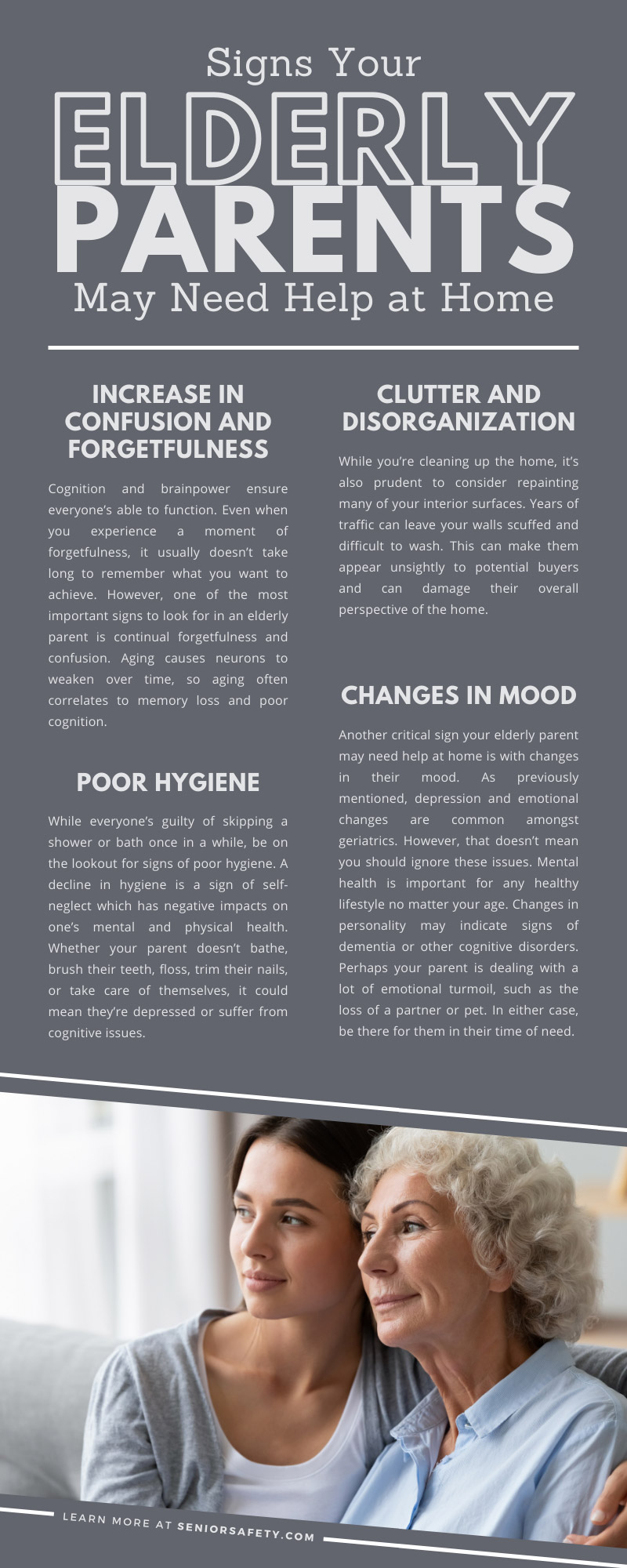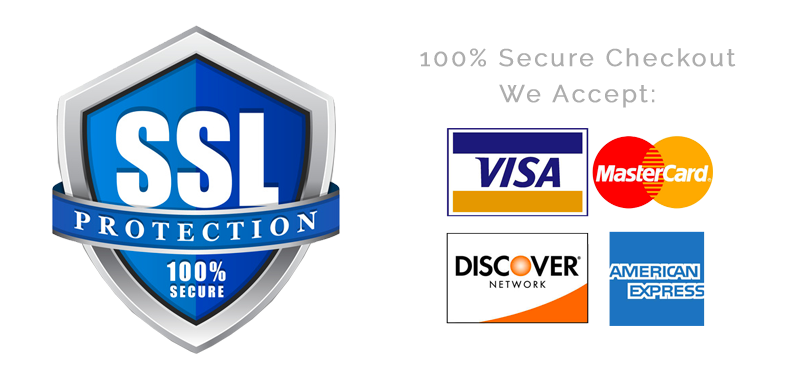 Living away from an aging parent is scary. Trusting their self-sufficiency is hard when mental and physical ailments impact their daily lives. Still, this guide on the signs your elderly parents may need help at home will help you know what to look for.
Living away from an aging parent is scary. Trusting their self-sufficiency is hard when mental and physical ailments impact their daily lives. Still, this guide on the signs your elderly parents may need help at home will help you know what to look for.
Increase in Confusion and Forgetfulness
Cognition and brainpower ensure everyone’s able to function. Even when you experience a moment of forgetfulness, it usually doesn’t take long to remember what you want to achieve. However, one of the most important signs to look for in an elderly parent is continual forgetfulness and confusion. Aging causes neurons to weaken over time, so aging often correlates to memory loss and poor cognition. When it’s an obvious pattern, it’s time to think about alternatives or homecare help. Serious memory loss may be a symptom of dementia or Alzheimer’s. Confusion may also be a symptom of an unreported seizure. Either way, consult your parent’s doctor if you feel these are pressing issues. Your parent may have an underlying health condition you didn’t know about.
Clutter and Disorganization
Not everyone lives a clean, tidy lifestyle. It’s okay to be a little disorganized, but when clutter gets out of hand, this can pose a safety risk. While a little dust or debris is no cause for alarm, scattered clothes, boxes, and larger items are noticeable tripping hazards. When clutter becomes an issue, it’s time to take charge. You may notice unkempt bedrooms, bathrooms, kitchens, and other areas of the home filled with unnecessary items. This may be a sign of hoarding, which can have significant negative impacts on mental and physical health. Not to mention, bills and other important documents get lost in the disorganization. First, talk to your parent about ways they can clean up to create a safer living space. It may also help to hire a maid service to clean the house if you can’t do so.
Poor Hygiene
While everyone’s guilty of skipping a shower or bath once in a while, be on the lookout for signs of poor hygiene. A decline in hygiene is a sign of self-neglect which has negative impacts on one’s mental and physical health. Whether your parent doesn’t bathe, brush their teeth, floss, trim their nails, or take care of themselves, it could mean they’re depressed or suffer from cognitive issues. Don’t ignore these signs. Get your parent the help they need to take care of themselves. Talk to them if they’re feeling anxious or depressed about anything to understand the issue. If you feel they have limited memory or physical abilities, help them around the house or hire a caretaker to do so. If the problems persist, you may need to consider moving your parent into an assisted living facility.
Changes in Mood
Another critical sign your elderly parent may need help at home is with changes in their mood. As previously mentioned, depression and emotional changes are common amongst geriatrics. However, that doesn’t mean you should ignore these issues. Mental health is important for any healthy lifestyle no matter your age. Changes in personality may indicate signs of dementia or other cognitive disorders. Perhaps your parent is dealing with a lot of emotional turmoil, such as the loss of a partner or pet. In either case, be there for them in their time of need. There are many resources to utilize that offer senior counseling and social engagement to offer an outlet for them to express themselves. Otherwise, talk to their doctor if you feel these are early signs of dementia, Alzheimer’s, or Parkinson’s disease.
Neglected Home and Yard Maintenance
Similar to clutter inside the house, be on the lookout for unkempt home and yard maintenance. No one should live in shambles, especially aging parents. However, taking care of a house and yard requires a level of physical ability your parent may no longer have. Not to mention, hiring professional contractors or landscape services is a costly investment. If you feel your parent’s house is in disarray, act right away. Hire a professional service to make the necessary repairs and upkeep if you can. Otherwise, taking care of seniors is a great service project for local community organizations. Ultimately, if your parent can no longer take care of their house, it’s a clear sign they need extra help.
Injuries or Bruising
Living alone means taking care of oneself. However, if you’re older and unable to function as well as before, you have a higher chance of injury and accidents. Look out for unexplained bruises on your parent. Compromised mobility is a sign they need additional support. Perhaps your parent fell, injured themselves, or had an accident you weren’t previously aware of. You may need to update their home with slip-proof mats, support rails, and a stairlift if you feel they need it. If your parent is still relatively young and spritely, consider occupational therapy to help them regain strength and skills to better manage their daily activities. Keep a close eye on their medication, too. Some medications have side effects that inhibit motor control, which can cause swelling, bruises, and loss of balance. Make sure they take this medication as directed in a controlled environment to reduce the chance of accidents.
Poor Diet, Dehydration, and Medication Abuse
Lastly, make sure your parent eats and drinks plenty of water throughout their day. Significant weight gain or weight loss is a cause of concern for anyone, but this is pertinent for older people. Cooking is an overwhelming responsibility for those with limited coordination or mobility. An empty fridge or pantry is a clear sign your parent is not eating properly. Similarly, check their fluid intake. Make sure they stay hydrated to replenish their body with water. Staying hydrated helps blood circulation, cognition, and physical ability. Check their medication too. If your parent takes daily or weekly medications, make sure they don’t forget dosages and times. Consider purchasing a medication organizer to help your parent stay organized.
With that said, one way to make sure your parent receives the help they need is through a medical alert system. Senior Safety sells both landline and mobile medical alert systems with 24-7 communication. With low life alert monthly costs, it’s an affordable and easy solution to provide help and supervision for any aging parent at home and on the go. Call now for more information and a free consultation.









